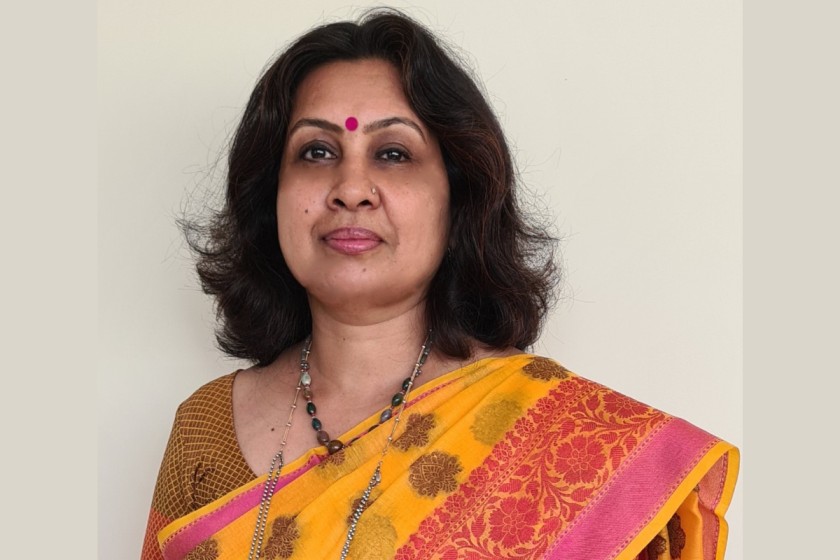- July 26, 2024
How Qlar India’s CFO is balancing Green Innovation with Financial Sustainability

In an era where environmental consciousness is reshaping industries, CFO of Qlar India (rebranding of erstwhile Schenck Process India), Ms. Guna Thantry, is at the forefront of a financial revolution. In this exclusive interview, we delve into how Qlar India is harmonizing green innovation with robust financial performance. Discover the strategies that are propelling Qlar India’s sustainable growth, the challenges they’re overcoming, and the CFO’s vision for a future where financial success and environmental responsibility go hand in hand.
Below are the edited excerpts:
Q. With Schenck Process India rebranding to Qlar India and a renewed focus on sustainable and digital solutions, how are you aligning your financial strategies to support these initiatives, and what impact do you anticipate on the company’s financial performance in the short and long term?
Guna: At Qlar India, we develop sustainable solutions and services that drive the green and digital transformation of material processing. Our aim is to reduce carbon emissions and enable circularity within our operations and supply chain. We also empower our customers to achieve the same by integrating our technologies and digital solutions into their production processes.
Our commitment to a green and sustainable Original Equipment (OE) business is evident in our financial performance. Currently, over 20% of our revenue comes from green and circular economies. We are investing to support growth in these areas and to align our supply chain accordingly. As a company serving heavy industries, we are a preferred vendor for major customers in steel, cement, and petrochemicals. Our strategy aligns with global political commitments to combat climate change, positioning us as a crucial supplier in the global heavy industries supply chain.
From a finance perspective, we need to align our ERP systems and enhance our reporting to meet new accounting standards and ESG reporting requirements.
Q. Considering your company’s commitment to the circular economy and climate-neutral processes, how are you balancing the investment in green technologies with the need to maintain profitability and shareholder value?
Guna: We already offer equipment designed for the circular economy, such as:
- SIMPLEX Flat Bottom (FB) feeder for plastic waste recycling.
- CS+ loss-in-weight feeder for the battery manufacturing industry.
Our advanced control systems, like the CONiQ control systems, provide condition monitoring and process optimization to minimize energy use in weighing and feeding processes. The MultiFlex NG+ feeder system is another example of our innovation.
Our entire product portfolio is electrified and digitally connected, demonstrating our proactive approach to environmental stewardship. By combining our high-precision solutions with digital intelligence, we ensure resource efficiency and zero waste within the production process.
Additionally, we are developing waste-to-energy technologies in partnership with local governments. Our leadership in green technologies positions us ahead of the market, allowing us to maintain growth and profitability.
Q. As Qlar India expands its presence in emerging sectors like batteries, green steel, and recycling, what financial challenges do you foresee, and how are you planning to address them to ensure sustainable growth and a robust financial structure?
Guna: We need to expand our supply chain to meet the demand for various equipment in the green steel, batteries, and recycling industries. Our challenges include supporting the supply chain through training, quality assurance, and payment discounting schemes.
Additionally, our finance function must understand the reporting needs of our customers, shareholders, and society. We may need to reconfigure our existing ERP system and add new reporting requirements to capture the impact on sustainability and the circular economy.
Q. How do you manage the financial risks associated with research and development in highly specialized fields? What measures are taken to ensure a balance between innovation and cost control?
Guna: Our approach centres on lean manufacturing, involving our customers in the innovation process. We partner with them, offering our equipment on a trial basis before its market release. This ensures we stay attuned to customer needs, driving both innovation and cost optimisation.
Advanced control systems, such as CONiQ, provide condition monitoring and process optimisation. These systems are specifically designed to minimise energy use in weighing and feeding processes. To implement CONiQ control systems in our milling equipment, we are working closely with our customers, allowing them to trial our equipment and provide feedback.

Shivani Srivastava
Shivani is a Senior Editor at CFO Collective - An IMA Company. Her passion lies in engaging with senior finance leaders to delve into topics such as AI, technology, corporate finance, and sustainability, extracting invaluable insights that she transforms into enriching material for the finance community.
